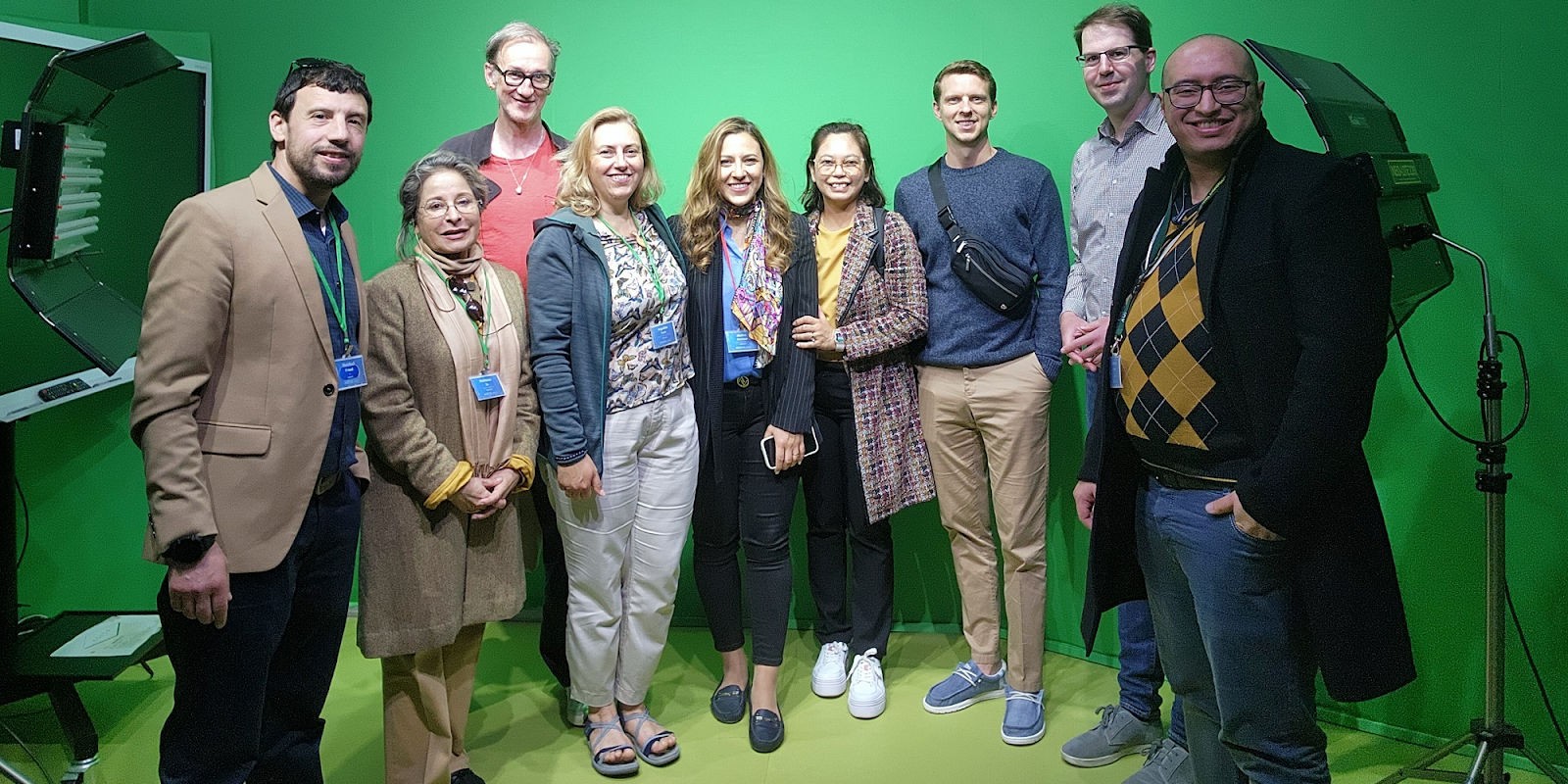
Image: The two project leads (second and third from left in front row) gathering feedback from other faculty developers at AMICAL 2023.
This is the fifth in a series of posts about outcomes of the Project Incubator at AMICAL 2023.
The Project Incubation program has provided us with a unique opportunity to address the challenges faced by Centers for Learning & Teaching (CLTs) across the AMICAL consortium and beyond. Our project aims to offer a replicable framework to support faculty developers in strategic planning, advocacy, and self-evolution of CLTs. In this blog post, we will reflect on our experiences in the Project Incubator program, outline our next steps, and extend an invitation for collaborative engagement with other CLTs.
Reflections on our team’s experience with the Project Incubator program
- Research on CLTs: Our participation in the Project Incubator program stemmed from the realization that CLTs have been operating without a comprehensive framework for development and assessment. The program provided us with the incentive to research existing literature, to understand the challenges and potential solutions, thus fostering a deeper appreciation of the importance of our project.
- Collaborative Learning and Exchange: The Project Incubator brought together two individuals with widely different CLT infrastructure/ resources and model of institutional governance to share their experiences, insights, and expertise. It enriched our learning allowing us to explore innovative approaches.
- Overcoming Challenges: Developing a replicable framework for CLTs comes with its own set of challenges. Through AMICAL’s facilitation of an in-person meeting, we were able to find solutions that have enabled us to refine our project.
Pre-Conference
- Framework Refinement: Building upon the comprehensive ACE-POD Center for Teaching and Learning Matrix, we reviewed and modified the framework to align it with the post-COVID new norms in teaching and learning. This adaptation ensures that our model remains relevant and effective in the changed educational landscape.
- CLT Self-Study and Alignment: We conducted a self-study of our respective CLTs using the modified framework. This assessment helped us gauge the current status, level of development, and alignment of our centers in terms of organizational structure, resource allocation, infrastructure, and programs/services. It provided a baseline for future planning.
- Institutional Engagement: To garner institutional commitment and support, we then engaged with academic leadership to understand their expectations regarding the role of CLTs. Our self-evaluation of CLTs was consolidated with the feedback from the leadership, thereby ensuring that our assessment of our centers and areas for improvement as flagged, were aligned with the institutional strategic policies. This also helped us identify areas where intentional commitment of the institution is required
Next steps for our project
As we move forward from the Project Incubator program, we have outlined the following next steps for our project:
- Collaboration and Action Planning: Working in partnership with another CLT, helped us develop collaborative action plans for effective and efficient functioning. This pilot collaboration will serve as a model for wider collaboration among all CLTs within the AMICAL consortium. The feedback and insights gathered during the conference will inform our action plan.
- Invitation for engagement to other CLTs across AMICAL: We intend to invite all heads of CLTs interested to join this collective effort to
- Review their units: As we provide a modified ACE-POD matrix for CLTs, we encourage CLT directors to review their centers based on this framework. The guidelines and model will help universities assess and develop realistic plans for program and infrastructural development
- Enlist Institutional Leadership Support: The self-assessment and the resultant evidence based action plan will hopefully garner support from institutional leadership and secure the necessary backing for their growth
- Resource Sharing and Collaboration: We hope to develop a platform for sharing professional development (PD) resources among CLTs. All will contribute and access these shared resources, facilitating the growth and development of faculty developers across the AMICAL consortium and beyond
- Propose a book on CLTs across AMICAL institutions- an edited version to highlight the multiple variations of establishing, developing and growing CLT
Our participation in the Project Incubator program has been transformative, providing us with the tools, knowledge, and collaborative network to drive change in CLTs. As we move forward, we remain committed to refining our framework, engaging with academic leadership, and fostering collaboration among CLTs. We hope others will join us in this journey of self discovery, of empowering Centers for Learning & Teaching, enhancing faculty development, and ultimately improving student learning experiences. Together, we can create a lasting impact on higher education institutions worldwide.
